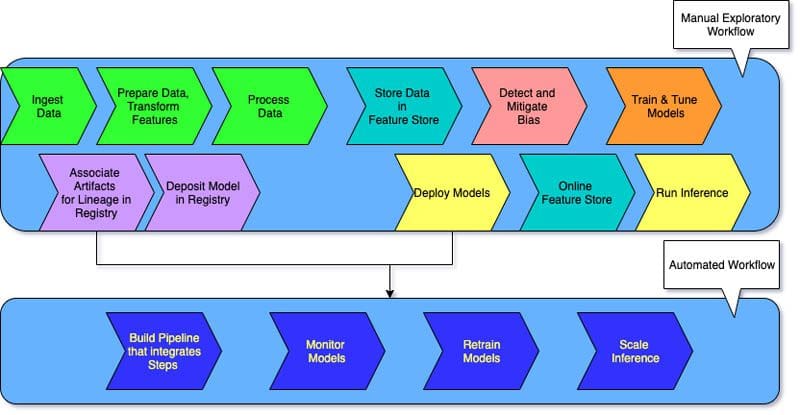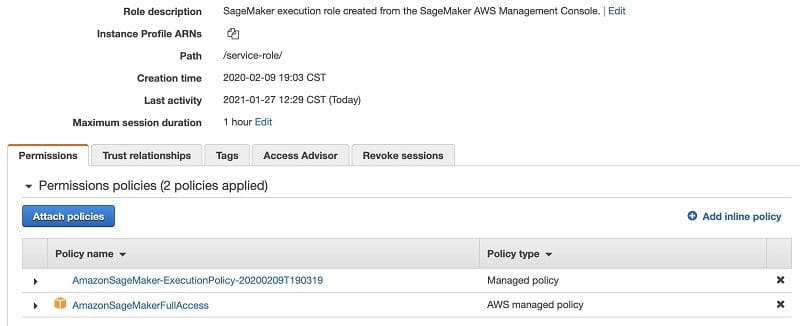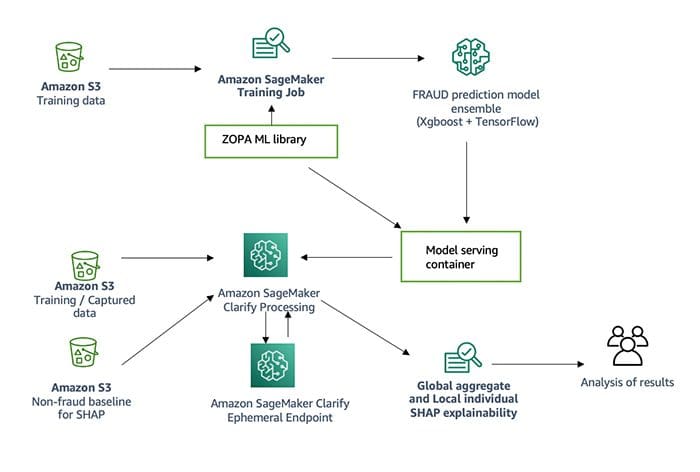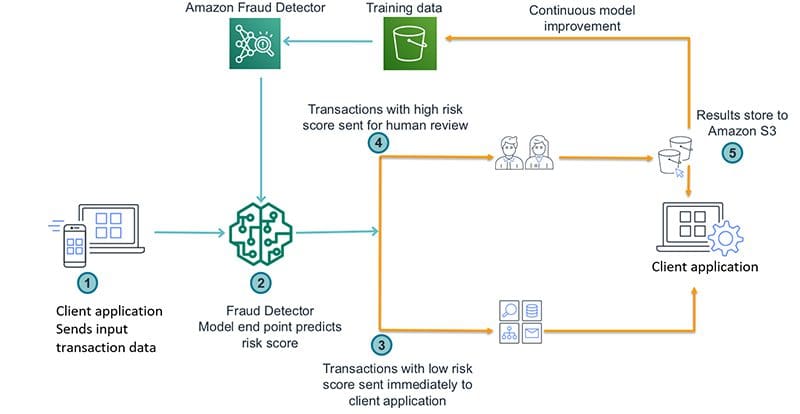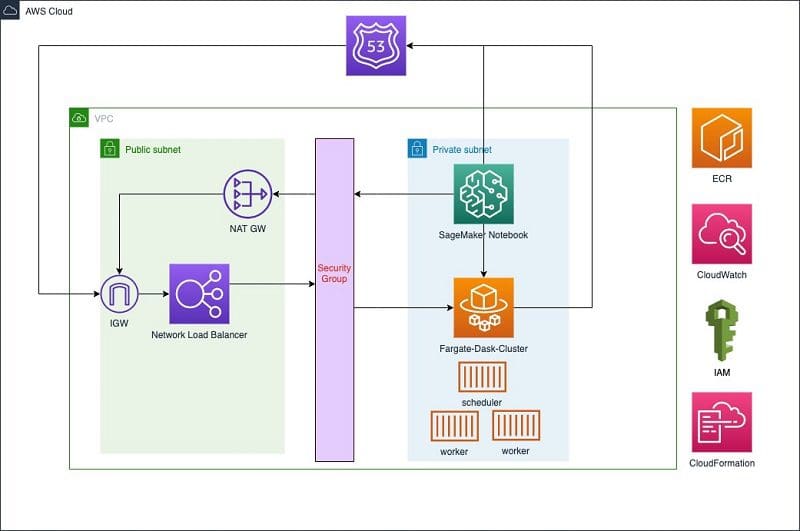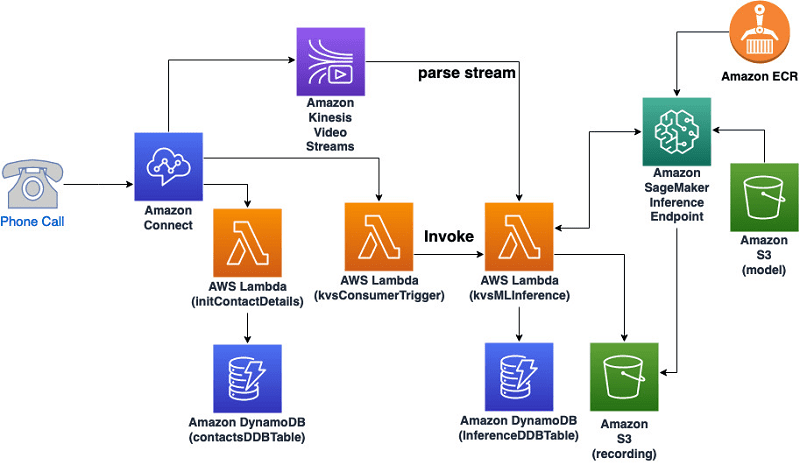Favorite TensorFlow is an open-source machine learning (ML) library widely used to develop neural networks and ML models. Those models are usually trained on multiple GPU instances to speed up training, resulting in expensive training time and model sizes up to a few gigabytes. After they’re trained, these models are
Read More
 Shared by AWS Machine Learning February 25, 2021
Shared by AWS Machine Learning February 25, 2021
Favorite In this tutorial, we will walk through the entire machine learning (ML) lifecycle and show you how to architect and build an ML use case end to end using Amazon SageMaker. Amazon SageMaker provides a rich set of capabilities that enable data scientists, machine learning engineers, and developers to
Read More
 Shared by AWS Machine Learning February 24, 2021
Shared by AWS Machine Learning February 24, 2021
Favorite This is a guest post authored by Ben Rigby, the VP, Global Head of Product & Engineering, Artificial Intelligence and Machine Learning at Talkdesk. Talkdesk broadens contact center machine learning capabilities with AWS Contact Center Intelligence. At Talkdesk, we’re driven to reduce friction in the customer journey. Whether that’s
Read More
 Shared by AWS Machine Learning February 24, 2021
Shared by AWS Machine Learning February 24, 2021
Favorite Time series forecasting is an approach to predict future data values by analyzing the patterns and trends in past observations over time. Organizations across industries require time series forecasting for a variety of use cases, including seasonal sales prediction, demand forecasting, stock price forecasting, weather forecasting, financial planning, and
Read More
 Shared by AWS Machine Learning February 19, 2021
Shared by AWS Machine Learning February 19, 2021
Favorite This post is co-authored by Jiahang Zhong, Head of Data Science at Zopa. Zopa is a UK-based digital bank and peer to peer (P2P) lender. In 2005, Zopa launched the first ever P2P lending company to give people access to simpler, better-value loans and investments. In 2020, Zopa received
Read More
 Shared by AWS Machine Learning February 19, 2021
Shared by AWS Machine Learning February 19, 2021
Favorite Each year, organizations lose tens of billions of dollars to online fraud globally. Organizations such as ecommerce companies and credit card companies use machine learning (ML) to detect online fraud. Some of the most common types of online fraud include email account compromise (personal or business), new account fraud,
Read More
 Shared by AWS Machine Learning February 19, 2021
Shared by AWS Machine Learning February 19, 2021
Favorite Sometimes your organisation needs to acquire new knowledge, new know-how or new capability. Here are 7 ways to approach this. Knowledge Acquisition is a core component of Knowledge Management. ISO 30401:2018 recognises this, and requires compliant organisations to include Knowledge Acquisition as part of the Knowledge lifecycle (Acquisition, Utilisation,
Read More
 Shared by Nick Milton February 19, 2021
Shared by Nick Milton February 19, 2021
Favorite As businesses around the world are embarking on building innovative solutions, we’re seeing a growing trend adopting data science workloads across various industries. Recently, we’ve seen a greater push towards reducing the friction between data engineers and data scientists. Data scientists are now enabled to run their experiments on
Read More
 Shared by AWS Machine Learning February 18, 2021
Shared by AWS Machine Learning February 18, 2021
Favorite Given the rising demand for fast and effective COVID-19 detection, customers are exploring the usage of respiratory sound data, like coughing, breathing, and counting, to automatically diagnose COVID-19 based on machine learning (ML) models. University of Cambridge researchers built a COVID-19 sound application and demonstrated that a simple binary
Read More
 Shared by AWS Machine Learning February 18, 2021
Shared by AWS Machine Learning February 18, 2021
Favorite Dr. Marian Croak has spent decades working on groundbreaking technology, with over 200 patents in areas such as Voice over IP, which laid the foundation for the calls we all use to get things done and stay in touch during the pandemic. For the past six years she’s been
Read More
 Shared by Google AI Technology February 18, 2021
Shared by Google AI Technology February 18, 2021

![]() Shared by AWS Machine Learning February 25, 2021
Shared by AWS Machine Learning February 25, 2021
